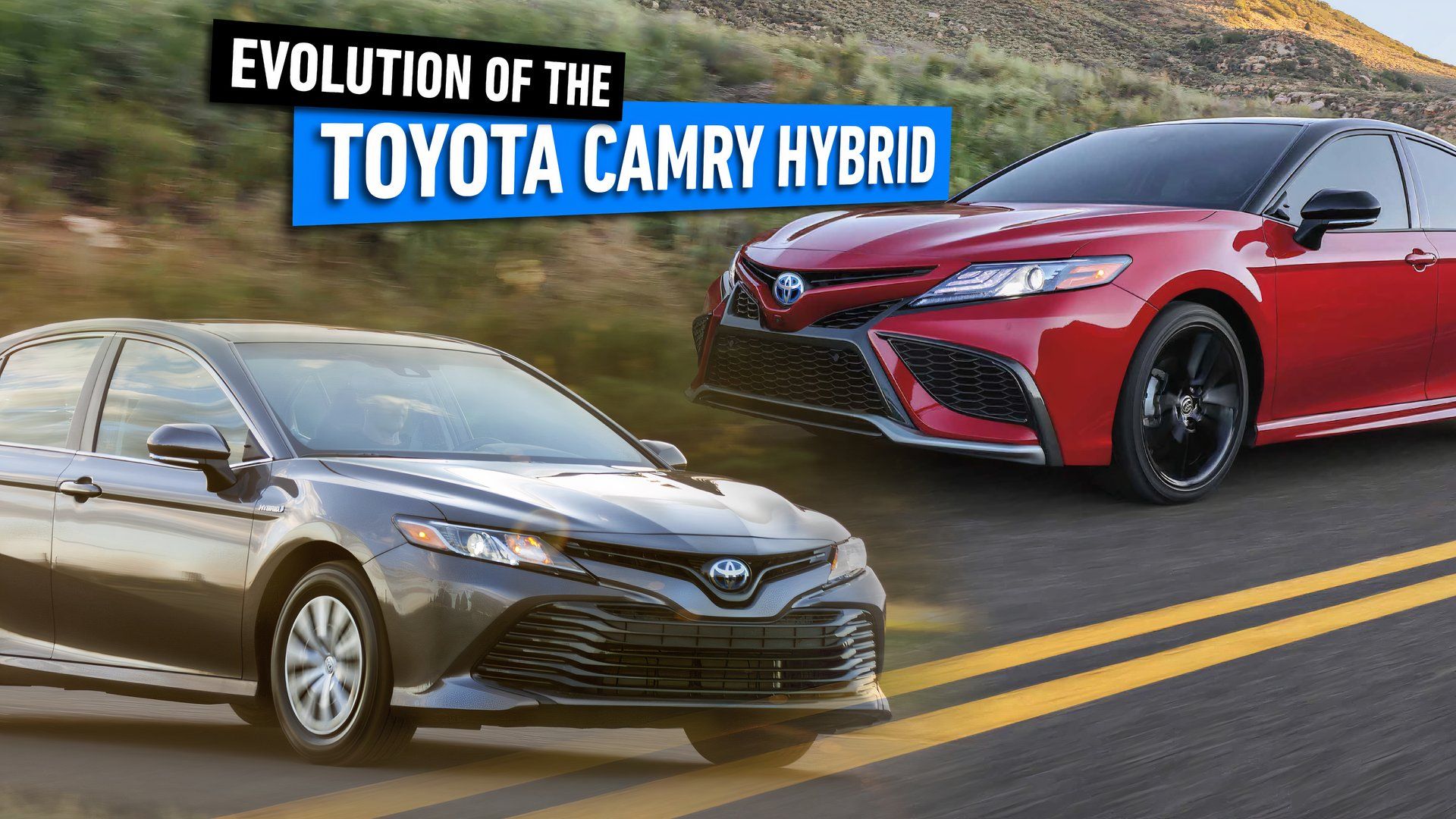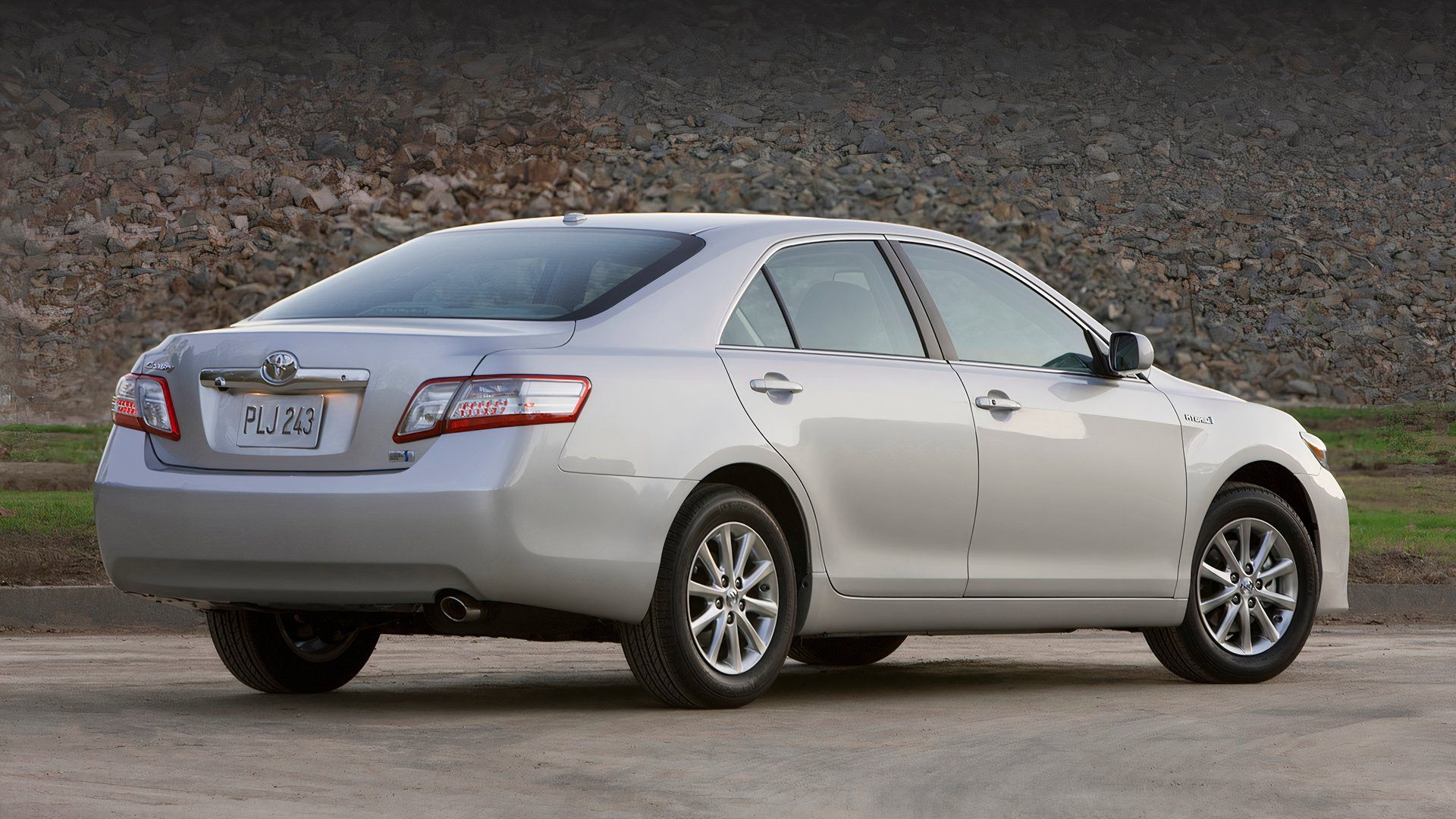The Toyota Camry Hybrid has been a cornerstone of the hybrid sedan market for nearly 20 years, offering a compelling blend of reliability, fuel efficiency, and practicality. For families seeking a dependable daily driver or commuters looking to minimize fuel expenses, the Camry Hybrid has consistently set the standard for what a fuel-efficient sedan can be.
Expanding on the 25-year legacy of the Toyota Camry, which to that point had been synonymous with quality and longevity in the mid-size sedan segment, as it continues to this day, 40+ years after the Camry introduction. Incorporating Toyota’s Hybrid Synergy Drive (HSD) in 2007, the Camry Hybrid demonstrated the brand’s commitment to innovation while retaining the core values that had made the Japanese sedan a household name in the U.S. And in the process, it cemented Camry’s leadership role in what was then the most popular car segment in America. This is its story.
In order to give you the most up-to-date and accurate information possible, the data used to compile this article was sourced from various manufacturer websites and other authoritative sources, including the EPA, KBB, and Edmunds.
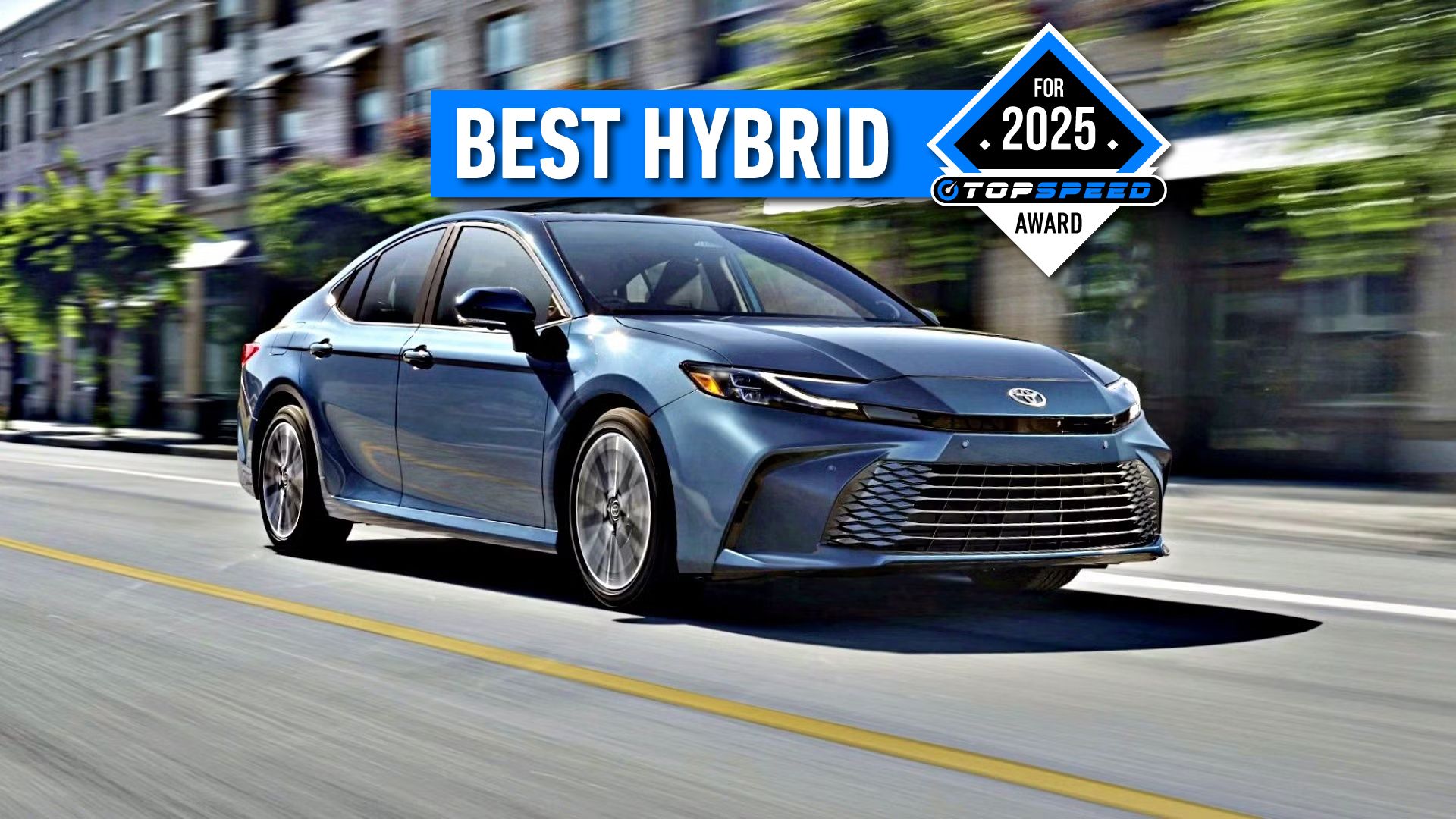
Related
TopSpeed’s Best Hybrid Of The Year Is The 2025 Toyota Camry
Toyota’s popular midsize sedan goes all-hybrid, but maintains its widespread appeal.
1
First Generation (2007-2011)
The Toyota Camry Hybrid Enhanced Toyota Camry Appeal
For the 2007 model year, the Toyota Camry Hybrid was introduced as an extension of the already well-established and respected wide-body Camry that was entering its fourth generation (and seventh overall, having overlapped with narrow- and wide-bodied Camrys through the 1990s).
Toyota’s aim was to blend the reliability and practicality of the mid-size Camry with the efficiency of Toyota’s groundbreaking compact Prius. By integrating hybrid technology into the Camry, Toyota offered a more spacious, powerful, and family-friendly alternative to pretty much anything in the market at the time.
Two years later, Camry received a face-lift with the aim of better differentiating the hybrid model from its conventional ICE counterpart, with subtle design changes, including a unique grille, hybrid-specific badging, and refined aerodynamic elements.
2007 Toyota Camry/Camry Hybrid Specifications
|
Camry Hybrid |
Camry |
|
|
MSRP |
$26,480 |
$19,900–$25,280 |
|
KBB Fair Purchase Price |
$5,311 |
$4,925–$5,338 |
|
Powertrain |
2.4-liter I-4 + 2 motors |
2.4-liter I-4 or 3.5-liter V-6 |
|
Transmission |
Continuously variable |
5-speed manual, or 5- or 6-speed automatic |
|
Power |
147 hp |
158–268 hp |
|
Torque |
138 lb-ft |
161–248 lb-ft |
|
Driveline |
Front-wheel drive |
Front-wheel drive |
|
Range |
585 miles |
426–462 miles |
|
Efficiency City |
33 mpg |
19–21 mpg |
|
Efficiency Highway |
34 mpg |
28–31 mpg |
|
Efficiency Combined |
34 mpg |
23–25 mpg |
|
0-60 MPH |
8.6 seconds |
6.5–9.5 seconds |
The Toyota Camry Hybrid slid seamlessly at the top of the Camry lineup, with the only discernible cosmetic differences being the exterior badging and interior displays. Not so in-your-face are subtle changes like the grille and underbody trim to lower aerodynamic drag. Of interest, though, was the switch to electric power assists to maintain steering and braking effort, as well as the air-conditioning, when the Camry Hybrid was operating without the engine.
The Toyota Camry Hybrid Enhanced Mid-Sized Sedan Desirability
- RepairPal Reliability Rating: 4/5
- Consumer Reports Owner Satisfaction: 5/5
- J.D. Power Quality & Reliability: 83/100
- Total Recalls: 10 (2007), 8 (2008), 10 (2009), 9 (2010), 5 (2011)
The first Toyota Camry Hybrid was well-received, adding to favorable Camry consumer opinion with fuel efficiency and seamless powertrain operation. Its record for reliability and repairability aligned with Toyota’s strong reputation, though some early models experienced minor concerns.
The Toyota Camry Hybrid took a hit on safety, with the unintended acceleration recall due to ill-fitting optional all-weather floor mats, but consumer confidence didn’t wane too greatly, thanks to Toyota’s quick actions on communication and repair.
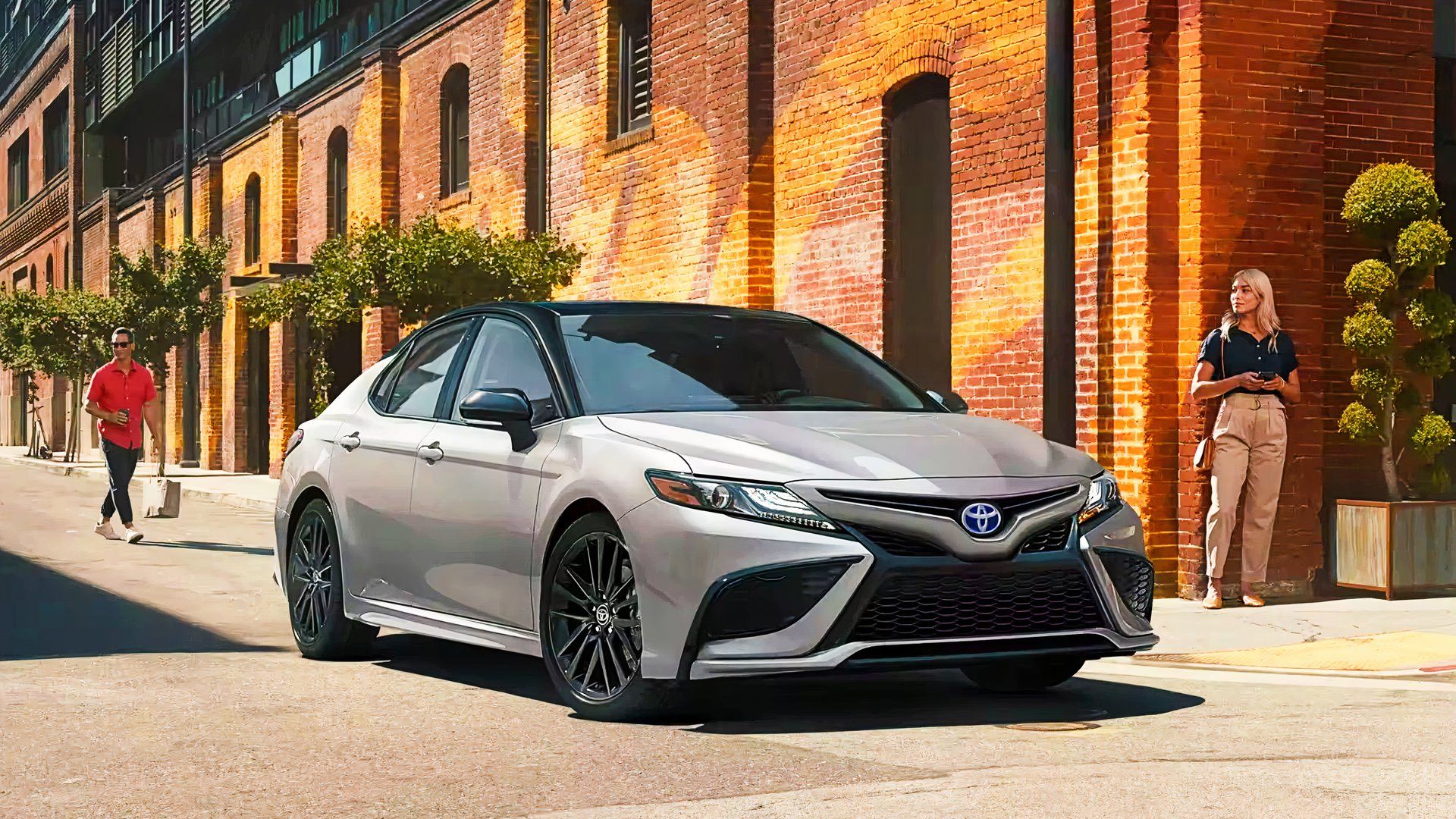
Related
What Toyota Camry Hybrid’s Battery Replacement Costs
Replacing a Toyota Camry Hybrid battery isn’t the most common maintenance task, but if you own a Camry Hybrid, you’ll want to know how much it costs.
2
Second Generation (2012-2017)
The Toyota Camry Hybrid Got A Boost For 2012
The second-generation Toyota Camry Hybrid debuted for 2012 model year with a major redesign, adopting a sportier, more aggressive styling and enhanced aerodynamics designed to appeal to younger buyers. The HSD used a larger engine to improve power and efficiency. Toyota also introduced another Camry Hybrid trim level for affordability.
In 2015, the Toyota Camry Hybrid underwent an extensive facelift, replacing every body panel except the roof to create an even more modern appearance. Under the skin, Toyota retained all existing powertrains, but revamped interiors with higher-quality materials and added advanced safety features to create a more premium presence.
2011 vs. 2012 Toyota Camry Hybrid Specifications
|
Toyota Camry |
2012 Hybrid |
2011 Hybrid |
|
MSRP |
$26,660–$29,960 |
$29,147 |
|
KBB Fair Purchase Price |
$8,758–$9,309 |
$6,961 |
|
Powertrain |
2.5-liter I-4 + 2 motors |
2.4-liter I-4 + 2 motors |
|
Transmission |
Continuously variable |
Continuously variable |
|
Power |
200 hp |
147 hp |
|
Torque |
156 lb-ft |
138 lb-ft |
|
Driveline |
Front-wheel drive |
Front-wheel drive |
|
Range |
663–680 miles |
568 miles |
|
Efficiency City |
40–42 mpg |
31 mpg |
|
Efficiency Highway |
37–38 mpg |
35 mpg |
|
Efficiency Combined |
39–40 mpg |
33 mpg |
|
0-60 MPH |
7.2 seconds |
8.4 seconds |
Although the second-generation Toyota Camry Hybrid introduced a slightly larger engine, the changes were significant, with power upgraded 36-percent, torque up 13-percent, and combined efficiency improved about 20-percent. The other contributing factor was that the HSD was lighter, making the overall car shed pounds and, resultantly, easier to drive around.
2012 Toyota Camry Hybrid vs. Competition Specifications
|
Toyota Camry Hybrid |
Ford Fusion Hybrid |
Kia Optima Hybrid |
|
|
MSRP |
$26,660–$29,960 |
$31,565 |
$26,450 |
|
KBB Fair Purchase Price |
$8,758–$9,309 |
$5,462 |
$5,362 |
|
Powertrain |
2.5-liter I-4 + 2 motors |
2.5-liter I-4 + 1 motor |
2.4-liter I-4 + 1 motor |
|
Transmission |
Continuously variable |
Continuously variable |
6-speed automatic |
|
Power |
200 hp |
191 hp |
206 hp |
|
Torque |
156 lb-ft |
136 lb-ft |
154 lb-ft |
|
Driveline |
Front-wheel drive |
Front-wheel drive |
Front-wheel drive |
|
Range |
663–680 miles |
665 miles |
619 miles |
|
Efficiency City |
40–42 mpg |
41 mpg |
34 mpg |
|
Efficiency Highway |
37–38 mpg |
35 mpg |
38 mpg |
|
Efficiency Combined |
39–40 mpg |
38 mpg |
36 mpg |
|
0-60 MPH |
7.2 seconds |
8.7 seconds |
8.3 seconds |
The second-generation Toyota Camry Hybrid had to boost its performance and efficiency in the face of growing competition in the mid-size hybrid sedan market, with just about every major player in the segment fielding a hybrid competitor. To maintain its edge, Toyota also improved the Camry Hybrid’s interior calmness and refinement.

Add TopSpeed to your Google News feed.
3
Third Generation (2018-2024)
2018 Toyota Camry Hybrid Proved A More Dynamic Sedan
The third-generation Toyota Camry Hybrid marked a significant shift with its adoption of Toyota’s New Global Architecture (TNGA), with enhanced structural rigidity that resulted in a more dynamic, responsive, and comfortable driving experience – more precise handling and smoother ride quality.
Under the hood, the Camry Hybrid’s slightly tweaked 2.5-liter hybrid powertrain was further improved for efficiency, topping the 50-mpg threshold in the entry-level trim. In its final year in 2023, an interior refresh introduced a larger touchscreen, upgraded materials, and advanced tech features for passenger convenience.
2017 vs. 2018 Toyota Camry Hybrid Specifications
|
2018 Hybrid |
2017 Hybrid |
|
|
Trim Levels |
LE, SE, XLE |
LE, SE, XLE |
|
MSRP |
$28,895–$33,320 |
$28,034–$32,094 |
|
KBB Fair Purchase Price |
$20,162–$23,604 |
$15,614–$18,387 |
|
Powertrain |
2.5-liter I-4 + 2 motors |
2.5-liter I-4 + 2 motors |
|
Transmission |
6-speed automatic |
Continuously variable |
|
Power |
200 hp |
200 hp |
|
Torque |
163 lb-ft |
156 lb-ft |
|
Driveline |
Front-wheel drive |
Front-wheel drive |
|
Range |
598–676 miles |
646–680 miles |
|
Efficiency City |
44–51 mpg |
40–42 mpg |
|
Efficiency Highway |
47–53 mpg |
37–38 mpg |
|
Efficiency Combined |
46–52 mpg |
38–40 mpg |
|
0-60 MPH |
7.9 seconds |
7.2 seconds |
The 2018 Toyota Camry Hybrid kept the same size engine but re-engineered the 2.5-liter Atkinson cycle engine with an updated Hybrid Synergy Drive. The result was a boost in fuel economy, with the entry-point LE using a lithium-ion battery for efficiency and weight savings, while the other trim levels stayed with the heavier nickel-metal hydride batteries.
The 2018 Toyota Camry Hybrid Aimed To Stay On Top And It Did
- RepairPal Reliability Rating: 4/5
- Consumer Reports 2019 Reliability: 90/100
- CarEdge Projected Average Maintenance Costs: $608
- Total Recalls: 2 (2019), 2 (2020), 1 (2021), 1 (2022)
The aim of the Third Generation Toyota Camry Hybrid was to tweak performance and reliability before a wholesale reworking of the Fourth (latest), and it came through in spades, lowering ownership costs with a refined powertrain and durable components. A full suite of driving aids contributed toward making the third-gen Toyota Camry Hybrid a terrific buy.
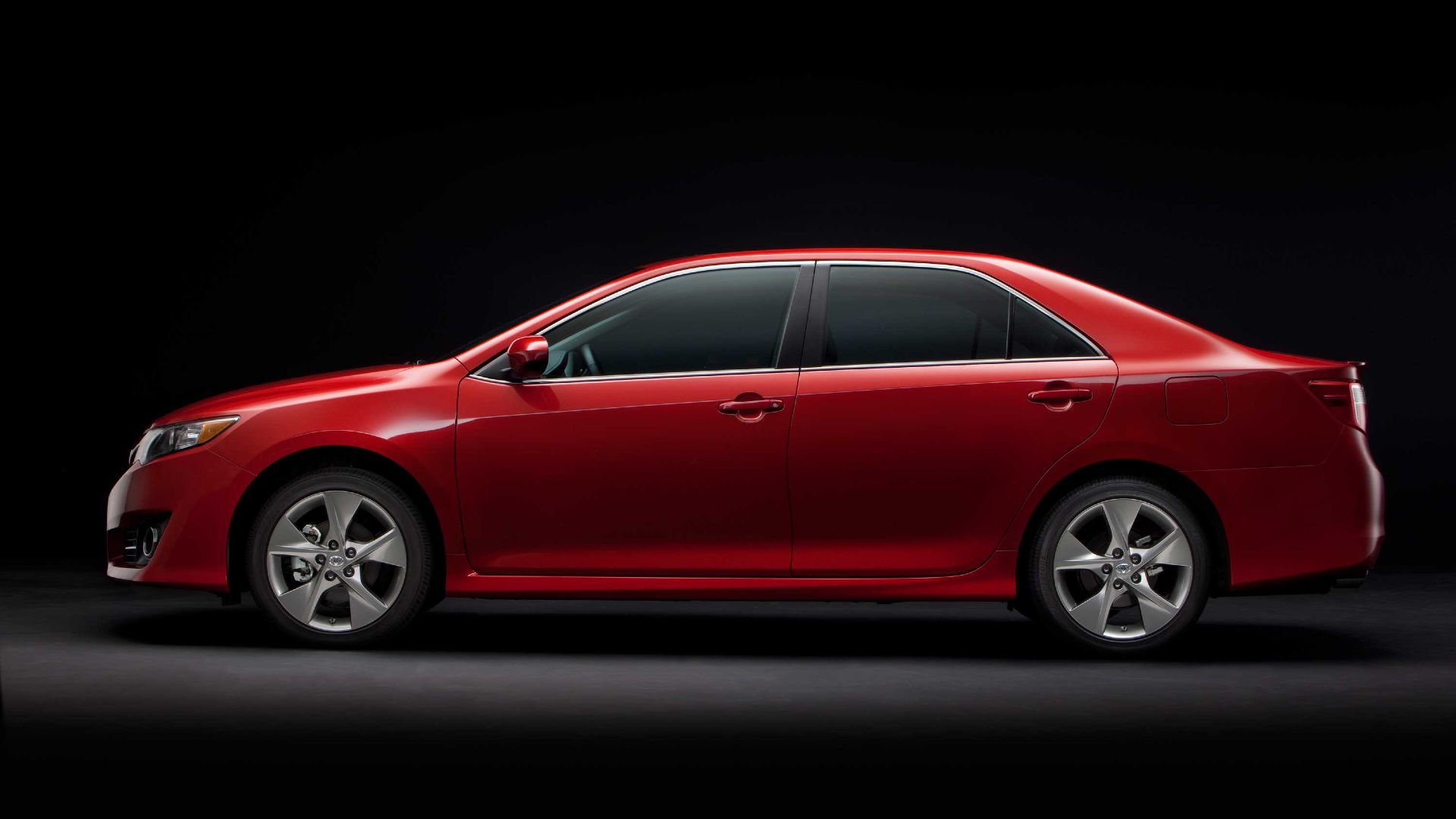
Related
The Used Hybrid Under $10,000 That’s Notoriously Reliable
Buying used cars can be tricky, but some reliable steals should be mentioned, and this ten-year-old hybrid car is one of them.
4
Fourth Generation (2025-Present)
The 2025 Toyota Camry Is A Hybrid-Only Model
Introduced early in 2024 as a 2025 model, the current Toyota Camry Hybrid showcases the bold and modern exterior design Camry has always strived for, and hints at sportier and more refined driving experiences. It adds AWD to the Camry Hybrid for the first time, but perhaps ironically, it also gives up one of its more desirable performance features.
Toyota’s decision to transition Camry into an exclusively hybrid lineup underscores the company’s commitment to sustainability for its gasoline powertrains, and makes Camry a standout in the hybrid mid-size sedan segment. Doing so, however, eliminated the V-6 engine of the dedicated ICE Camry
2025 Toyota Camry Specifications
|
Hybrid FWD |
Hybrid AWD |
|
|
MSRP |
$28,700–$34,900 |
$30,225–$36,425 |
|
Powertrain |
2.5-liter I-4 + 2 motors |
2.5-liter I-4 + 3 motors |
|
Transmission |
Continuously variable |
Continuously variable |
|
Power |
225 hp |
232 hp |
|
Torque |
163 lb-ft |
163 lb-ft |
|
Range |
611–663 miles |
572–650 miles |
|
Efficiency City |
48–53 mpg |
44–51 mpg |
|
Efficiency Highway |
47–50 mpg |
43–49 mpg |
|
Efficiency Combined |
47–51 mpg |
44–50 mpg |
|
0-60 MPH |
7.1 seconds |
6.8 seconds |
The 2025 Toyota Camry Hybrid lineup offers trims tailored to different preferences – the LE prioritizes ultra-efficiency with its lighter lithium-ion battery and optimized aerodynamics, achieving up to 53 mpg in city driving. Higher trims like the XLE and SE emphasize efficient performance, with sportier suspension tuning, and larger wheels. All-wheel drive is available for all trim levels for a uniform cost of $1,525 for the added motor and required componentry.
2025 Toyota Camry Specifications
|
2025 |
Toyota Camry |
Honda Accord Hybrid |
Hyundai Sonata Hybrid |
|
MSRP |
$28,700–$36,425 |
$33,655–$39,300 |
$31,150–$37,600 |
|
Powertrain |
2.5-liter I-4 + 2 or 3 motors |
2.0-liter I-4 + 2 motors |
2.0-liter I-4 + 1 motor |
|
Transmission |
Continuously variable |
Continuously variable |
6-speed automatic |
|
Power |
225–232 hp |
204 hp |
192 hp |
|
Torque |
163 lb-ft |
247 lb-ft |
139 lb-ft |
|
Driveline |
Front- or all-wheel drive |
Front-wheel drive |
Front-wheel drive |
|
Range |
572–663 miles |
563–614 miles |
620 miles |
|
Efficiency City |
44–53 mpg |
46–51 mpg |
44 mpg |
|
Efficiency Highway |
43–50 mpg |
41–44 mpg |
51 mpg |
|
Efficiency Combined |
44–51 mpg |
44–48 mpg |
47 mpg |
|
0-60 MPH |
6.8–7.1 seconds |
8.7 seconds |
8.3 seconds |
The 2025 Toyota Camry stands strong in the shrinking hybrid mid-size family sedan segment (there are mid-sized mild-hybrids from luxury makers like BMW and Mercedes), having taken some strong strides against the Honda Accord Hybrid’s refined cabin and sporty performance, as well as the Hyundai Sonata Hybrid’s futuristic design and affordability.
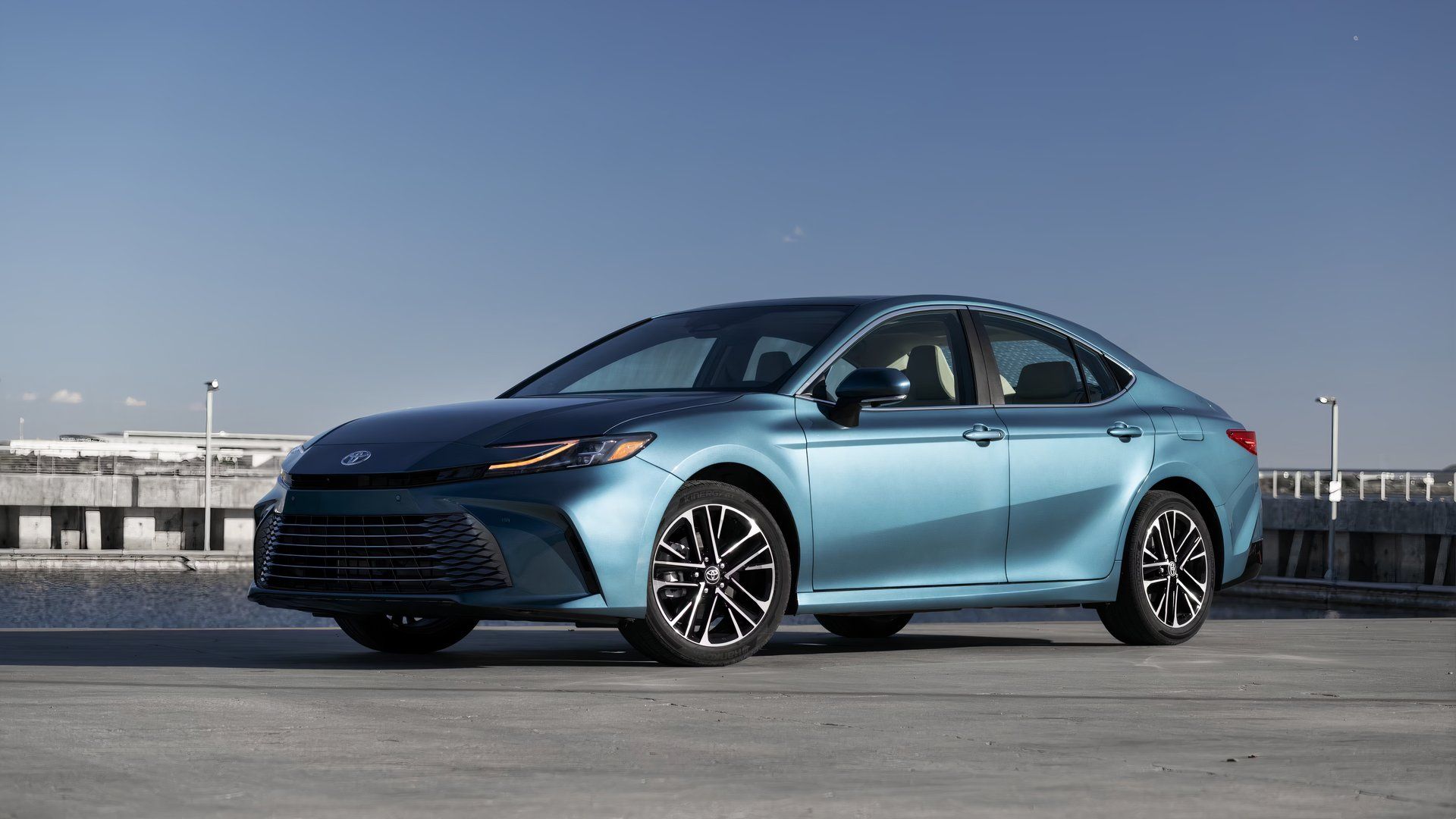
Related
Why The Toyota Camry Hybrid Offers The Best Bang For Your Buck
The Camry Hybrid is a great choice for those looking for a car that is both environmentally friendly and affordable.
For 20 Years, The Toyota Camry Hybrid Has Led The Hybrid Sedan Segment
Over its four generations, the Toyota Camry Hybrid has not only furthered Toyota’s hybrid leadership but also that of the mid-sized sedan market, particularly in staying relevant in the shift of consumer demand for compact crossovers as the primary family vehicle.
From its introduction as a hybrid alternative to its current standing as a hybrid exclusive, the reliable Toyota Camry Hybrid has gained more efficient powertrains, steadily improving with each redesign and each refreshening, advancing its safety features and modernizing its designs. It has been, and remains, a cornerstone of the Toyota lineup, and a stalwart in the mid-size sedan segment.
